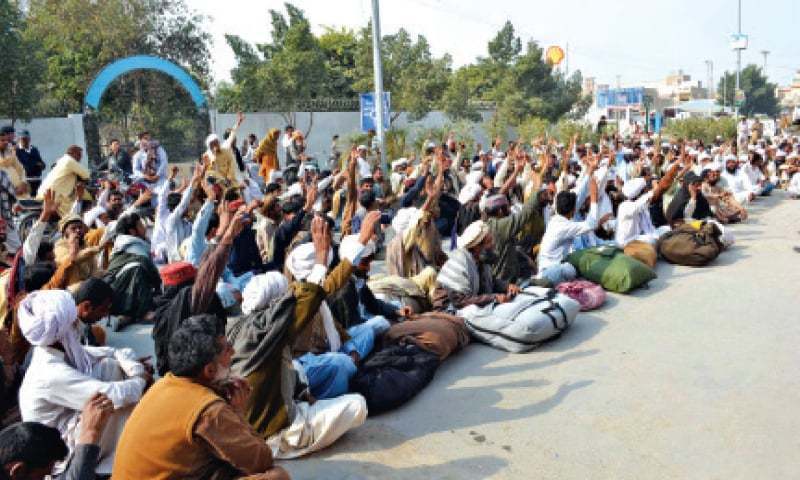
Last week, the police used tear gas against a group of farmers who were protesting at Thokar Niaz Beg near Lahore. According to a news story “One of the protesting farmers injured in the tear gas shelling two days ago, breathed his last at a city hospital on Thursday. Malik Ashfaq Langrial was Vehari district finance secretary of the Pakistan Kissan Ittehad (Anwar group) and had fallen ill after the protesting farmers’ clash with police late on Tuesday night. The police had used water cannon and fired tear gas shells to disperse farmers from various Punjab districts who had assembled at the southern entrance to the city (Multan Road) and partially blocked it to traffic. The farmer leader was shifted to Jinnah Hospital emergency ward on Thursday noon when his condition worsened where he breathed his last after around three hours.”
The Pakistan Kissan Rabita Committee “alleged that chemical-mixed water was used to disperse the farmers protesting for their basic rights. It demanded registration of a murder case against those who ordered the baton charge and use of chemical-mixed water on the protesters.”
According to an editorial in Dawn the police action as appalling. “While the administration hopes that such a measure would act as a deterrent, in reality it could add vigour to the farmers’ campaign. The season of protests is well under way and as usual the law enforcers are being watched closely for evidence of the intent of those in power. How the police and other security personnel deal with demonstrators in urban areas is especially under focus, for big cities and towns are often the places where examples are created. The aim is to deter and discourage or even to crush, and it seems that the government is desperate to quell the farmers’ unrest. But in using force against the protesters, it has shown weakness instead of a resolve to address the grievances of the agricultural workers to the mutual satisfaction of both parties. Not all the known farmer leaders are on the same platform. However, those who are here have been joined by politicians and civil society activists in condemning the use of the baton and water cannons. Also, in the face of vehement police denials, the demonstrators have angrily blamed the security force for the death of a well-known farmer activist from Vehari, demanding a case be registered against the officer who allegedly ordered the charge against the protesters and insisted that chemicals be mixed with the water aimed at the farmers. The police say the deceased died of cardiac arrest a long while after the water and baton barrage and denied allegations about the use of any chemical as a dispersing agent. Needless to say, the ammunition on display was quite devastating even if wasn’t laced with a lethal substance. It showed intent on the part of the administration to go for the kill rather than wait and engage with, or even try and exhaust, those advancing on the seats of power with their demands. The intensity of the force used in the action was instantly linked to the presence in Lahore of a capital city police officer who has been built up by a section of the press as someone who believed in smothering trouble fast and forcefully. This is a scary precedent for protesters of all hue. It is not a wise tactic and will only deepen divisions between people and the government that must control emotions for its own good.”
![]()





